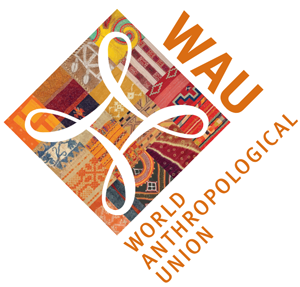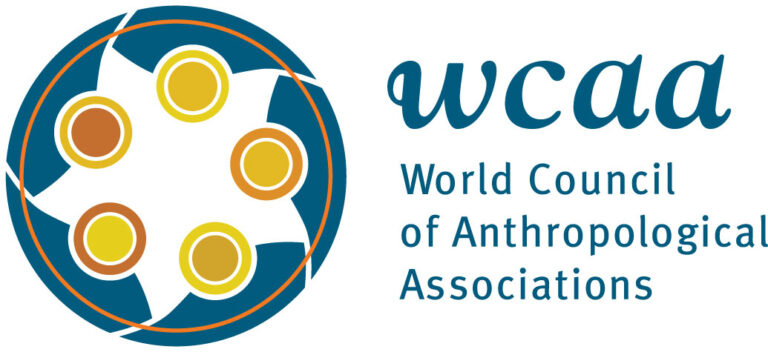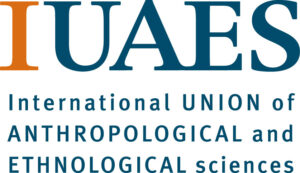Questions for Journal Editors for the Tenth Anniversary of Deja Lu
Interview with Chen Gang, editor of the International Journal of Business Anthropology, interviewed by Gordon Mathews.
Sept. 7, 2021
GM: How long has the International Journal of Business Anthropology been publishing?
CG: Since 2010. It now has published eleven volumes. It published two issues a year, generally with eight or nine articles each. I have been editor-in-chief after volume seven.
GM: What language, do you publish in? Typically are your authors more from Chinese universities or from foreign universities?
CG: We publish in English. We try to send the call for papers everywhere. We’ve published papers by French anthropologists and by Japanese anthropologists, but all in English. We require papers to be written in English; it’s written in our call for papers.
GM: Why English? You’re in China, your university is partly paid for by Chinese taxpayers.
CG: Well, the journal is published by North American Business Press. We publish in English because the journal is published outside China, and also because, when I took over, one of my goals was to introduce to the English-speaking world and the academic world outside China anthropological findings in non-English-speaking countries, including China. So we publish papers from many countries—Indonesia, Myanmar…
GM: Do you get pressure from your university or from any authorities who say you should be publishing in Chinese?
CG: Not yet! I don’t think they care too much. We don’t have too much influence.
GM: Okay, but you’re rare in the world to have a journal that’s publishing not in the language of one’s own society, especially a big society like China. You would have many many readers in China if you published in Chinese. What’s the advantage of publishing in English?
CG: In China, it’s really difficult to get a new journal approved by government offices if it is a journal in Chinese. To set up a new journal, you have to go through all these processes, a lot of applications which are quite difficult. This is one of the major reasons why we publish outside of China. Since our journal is published outside China, the authorities have no problem with that: our authors are not just from China, a bit from everywhere! Besides, in China, there are already many journals that publish anthropological papers in Chinese.
This journal is trying to introduce anthropological work outside of the West to the West. You can find this journal in many libraries–university libraries in the US, for example, people can download the papers. There is a Chinese citation index, CNKI, China National Knowledge Infrastructure, a Chinese index system, and Chinese readers can download papers published in our journal through that. But I do think that most of our readers are outside China: that’s what we try to focus on.
GM: In China, it’s widely said that publishing in English brings prestige, but you’re still supposed to publish in Chinese. How does this work in your own academic role?
CG: It’s seen as a good thing to publish in English. You get credit in China for publishing in English. But English journals have a different system—the Social Science Citation Index, for example. Any journals indexed by the SSCI in China today are considered at the top. Top universities in China, like Beijing University and Zhongshan University—they emphasize publications in these SSCI journals. Our journal is not yet indexed in SSCI—their criteria is too difficult for us (we only publish twice a year rather than four times a year). Yes, in China getting published in SSCI journals is really important if you want to get promoted. If you have papers published in SSCI journals, you will be much more competitive. Especially at top universities—if you do not have papers published in SSCI journals, you might not get promoted.
GM: A number of scholars around the world really dislike the SSCI—they say that it is Anglo American imperialism, “the West claiming itself as Best” and so on (since most of its anthropological journals are published in English and in the West). What do you think about that?
CG: Well, it depends on who set up the rules. Most of the journals indexed by SSCI are of high quality. SSCI has set up pretty clear, pretty open standards for how journals can be included. For me, it’s simply a kind of requirement you need for a journal. I don’t agree with those people who say that SSCI is only Western imperialism. From my academic point of view, you need those standards. You can’t live without them. If you’re going to talk about global anthropology, you do need some kind of standards, some kind of rules. We can negotiate what kinds of rules and requirements we need. But we certainly need it—we need some kind of a standard. This is true whether you speak English, Chinese, French, or Spanish as your native language; we all need a common rule to follow. We have an East Asian Anthropological Association, and in that, for Chinese, Japanese, and Korean anthropologists to communicate with one another at our annual meetings, we all choose English. We consider this our working language. A lot of Chinese scholars now want to introduce their work outside of China. If you want people to read your academic findings, you need to present them in a language that they know.
GM: You know that China has a long history of Chinese anthropologists saying, “we need to have our own Chinese anthropology we don’t need to follow Western models of anthropology.” But you seem to be saying that it’s OK to follow those Western models.
CG: For a long time Chinese anthropologists have tried to sinicize anthropology from the West. There’s nothing wrong with that—but if you want to communicate with the rest of the world what you have found in China, then you have to use English. Not many people read Chinese in the West.
GM: Many Westerners, as you know, have a negative view of China, thinking about censorship, and they wouldn’t trust publications coming out of China. Is that fair or do you think that’s an unfair reputation?
CG: Well, journals published inside China, in Chinese, they do have censors for that, that’s just the way it is in China. But for us, publishing in English, we don’t have those problems. Papers published in our journal, by different authors from different countries, even Chinese authors, we do criticize problems in our country but we try to find solutions to help solve those problems. We’re not like politicians, who have to praise everybody. No, we try to be fair and objective in criticisms and solutions. For me, business anthropology is applied anthropology. One of the goals of applied anthropology is to use our knowledge to try to identify and solve problems, including social problems. Even in communist countries like China, this is one of our top goals.
GM: Different anthropologists in different societies see things differently, and deal with problems in very different ways in their writing. How do you deal with contributions from different societies in the International Journal of Business Anthropology?
CG: Well, we try to introduce different perspectives of anthropologists from different countries, so that all anthropologists can communicate. Through their papers, you can understand, for example, what Indian anthropologists are trying to focus on, what kind of problems they are trying to identify. Only through publishing anthropological papers from different points can we reach a common understanding. Yes, there are different anthropologies in the world, because different countries have different problems, different topics they focus on, different ways of doing research. But still, we have something in common that we need to focus on—we are all human beings, trying to contribute to the better future of humankind. That’s why we set up this journal as an international journal—so that different anthropologists from different countries could communicate.
GM: How do you find referees for your journal?
CG: Basically two ways. Some referees are authors who have published papers in our journal before. Some come from our communicating with anthropologists who share similar research interests.
GM: Does your publisher have a website where reviews go to?
CG: This is one of our problems. We have a website, but we haven’t set up a reviewers’ website because we don’t have so much money for that. We do this ourselves: once we get papers we send them out to our reviewers and then send comments to the authors to revise their papers. We may communicate with reviewers and authors to see what kind of compromise we can make. We use two reviewers, typically one from in China and one from outside China. There are a number of professors in China, both from business and from anthropology, who are willing to review these articles. The other referee we use may be from the country the paper comes from but may be from some anthropologist in the USA who specializes in this area.
GM: Do you worry that Americans might referee things by American standards?
CG: Well, for academic work, you need some kind of rule, some kind of standard. Research papers need to give us a clear background, a clear methodology to show how you got your data, and research findings. I do believe that there is a common way to disseminate one’s research findings. This is why we call our journal an international journal—writers must follow these standards. Otherwise, the paper is not academic. However, research findings might be totally different from what Western anthropologist find in their research—that’s fine! I agree with that. We publish papers by some Islamic anthropologists—this is from their perspective!
GM: So I think what you’re saying is that the form of the paper must be constant in the sense of introduction of the problem and methodology and findings, but the content of the paper can have its own different point of view.
CG: Yes, the methodology must convince us that the data you’ve collected is not made up but is real. But the content is based on your own findings.
CG: Maybe my perspective comes from my own training in the USA—I worked with some pure natural scientists there, in the field of food safety. I went to Ohio State for my PhD. I came back to China in 2007. I went to some conferences and became convinced that China needed anthropologists, not just ethnologists. I felt that “China needs applied anthropology!” Not just theoretical anthropology but applied anthropology. Our journal does this: it is about how to do business in different cultures, and different lessons that need to be learned from people with different backgrounds.
GM: Have you thought about publishing this journal bilingually? This may be important for Chinese to read too.
CG: Right now I don’t think so. We don’t have funding; we have limited resources. We don’t charge authors any fees. Yes, I do sometimes think that it would be good to have our articles in Chinese. But Chinese today, especially young Chinese, they can read in English if they want to. If scholars in China apply for government grants, in the application form, they always emphasize that you have to know the current literature. This literature isn’t just in Chinese, but also out of China: foreign language articles. If you only list Chinese sources, you won’t get funding. This is standard in China now.
You need foreign sources, especially English or Japanese. For Chinese anthropologists now, there isn’t too much difficulty in reading English-language papers. I’ve never heard of any Chinese anthropologist saying that we can ignore the literature outside of China. Some have disagreed with applying Western theory to China, but not approaches and methodologies—those we share. This is true even in applications for grants, for government funding. Even for graduate students—it’s always emphasized that they must have a literature review in Chinese but also non-Chinese languages. A lot of Chinese anthropologists are quite open to the world. In the Chinese anthropological world, many leading professors have gotten their degrees outside China, trained in the UK or USA. They have had a lot of influence on Chinese anthropology.
GM: What are the biggest problems you face in editing the International Journal of Business Anthropology?
CG: So-so papers. There are often language problems—Chinese and Japanese anthropologists may not write well in English. I try so hard to encourage Korean anthropologists—so far, we haven’t published any paper at all from Korea. Many scholars, when they finish a paper in English, they send it to an SSCI journal. If they try so hard to finish one paper in English, they want to send it to an SSCI-indexed journal, so that they can get a better evaluation from their university. Usually we do not turn papers away. Even those we do not publish now, we send them back to their authors encouraging them to revise and resubmit. This is one reason we cannot get into the SSCI index. They ask us to provide papers we will be publishing in three future issues, and we can’t do that. We only publish two issues a year. Each year in China, we hold an international conference for business anthropology; so far we’ve had eight. We get papers from these conferences. From the conference we hosted at my university in 2019, we had business anthropologists from Japan and from the USA and Canada come. We encourage them to submit their papers to our journal! But for past two years, we haven’t been able to have a conference because of Covid-19.
GM: If you were introducing your journal to Déjà Lu readers, what would you tell them?
CG: Due to globalization, it is really important for us to communicate with people from different cultures, then they need to know different ways to do business, which we introduce to our readers. We want to have a platform for anthropologists outside China to communicate with China. We might disagree theoretically, but we need to have a common goal, for all human groups: that’s our aim. This should be in English because it’s a global language; it is the language most used around the world. More people can read English.
GM: What is your vision, twenty years from now, for your journal, and for anthropology?
CG: In twenty years I hope that more and more people around the world will have realized the importance of anthropology. In China today, anthropology is not highly emphasized. There is still a long way to go. We need to learn to live together with more understanding and communication, and this is what my journal is trying to do.



